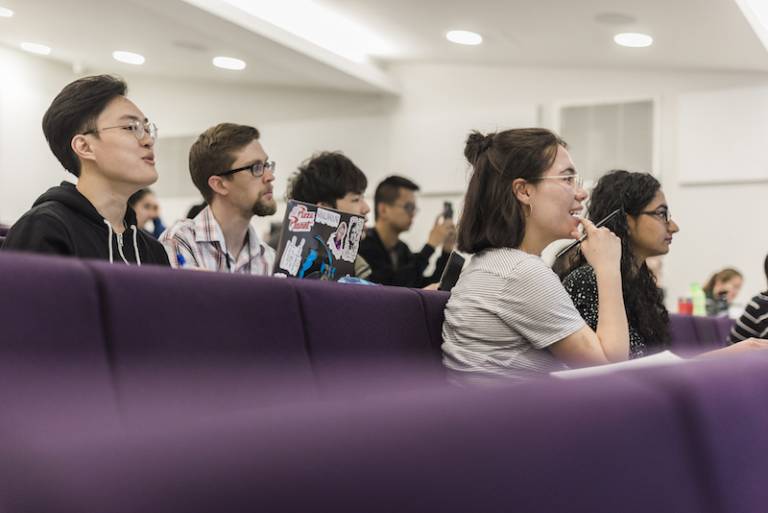Call for Abstracts: IHE Early-Career Researcher Symposium
30 June 2021
The first Healthcare Engineering @ UCL Early-Career Researcher (ECR) Symposium will be a packed, one-day event featuring cutting-edge research. Deadline for abstracts: 17 September.

Taking place on Tuesday 19 October, 9.30-5.30pm, the symposium will focus on 3 core themes:
- Prevention
- Monitoring and diagnostics
- Therapies and interventions
ECRS will lead informative sessions through oral presentations and flash talks. The event will also feature a plenary from Professor Rebecca Shipley (IHE Director), and a panel discussion with prominent UCL researchers, awards ceremony and networking session.
The Symposium aims to bring together ECRs affiliated with UCL who work on various aspects of Healthcare Engineering to create open, collaborative opportunities for the learning and development of the attendees. We will finish the day with a panel discussion to demonstrate how these ideas can be brought to market and create population-level impact.
We are inviting abstract submissions for oral presentations and shorter flash-talks which will be assessed by judges for the award of prizes. Presentation guidance through a bespoke training session will be provided by the Institute of Healthcare Engineering two weeks prior to the event. This free training session will take place on Tues 5th October, 10-11.30am so please keep this available.
We hope that everyone will enjoy attending this first ECR Symposium!
Calls for contributions: themes
Theme 1: Prevention
Within this Theme we invite research contributions that aim to deliver improved prevention of illness to avert the need for emotionally and physically burdensome, and interventions. From wearable devices, antimicrobial coatings to manufacturing methods for affordable vaccines. We also welcome more fundamental work, either experimental or computational, on understanding the causes and processes behind diseases in an effort to eventually prevent them.
Theme 2: Monitoring and diagnostics
This Theme incorporates research into novel imaging techniques (e.g. high-resolution images inside the body), sensors, in vitro systems (e.g. tests done on blood or tissue samples), and digital technologies (e.g. mobile phones, wearables) which help clinicians and patients to i) detect and diagnose diseases, ii) monitor disease progression and treatment responses, iii) self-manage chronic conditions (e.g. diabetes, HIV), and iv) identify patients who are likely to benefit from specific treatments (‘precision medicine’).
Theme 3: Therapies and interventions
This Theme covers a range of research into the engineering technologies underpinning the development of most healthcare therapies and interventions, also covering rehabilitative and assistive technologies. Submissions that meet these aims are welcome. Examples include; regenerative therapies, tissue engineering, simulations for surgical and drug interventions, development of prosthetics or living tissues and technologies to improve individuals’ daily living.
Guidelines for presenters
Abstracts should be no longer than 400 words and should include the following:
- Background and significance of the research
- Methods and major findings
- Concluding statement
Abstracts can be submitted for either oral or flash-talk presentations
- Oral presentations (limited slots) = 10 minutes with 3-5-minutes of questions
- Flash-talks = 3 minutes with 1-2 questions
Eligibility
Early career researchers (ECRs) are self-defined, but typically include MSc and PhD students, post-doctoral researchers, and those in non-permanent positions or junior academic roles. The research described in your abstract must be related to one of the above Themes. You, your research activities, or your supervisor must be affiliated with UCL.
Selection criteria
Abstracts will be evaluated for scientific merit by a panel of judges, with particular attention to the following criteria:
- Research Question
- Methods
- Analysis
- Results
- Conclusions
- Overall Scientific Quality & Merit
Abstracts over the word limit of 400 will not be accepted. The deadline for submitting abstracts is 5pm on 17 September 2021. Presenters will be notified by 24th September 2021.
Register for the Symposium here
 Close
Close

